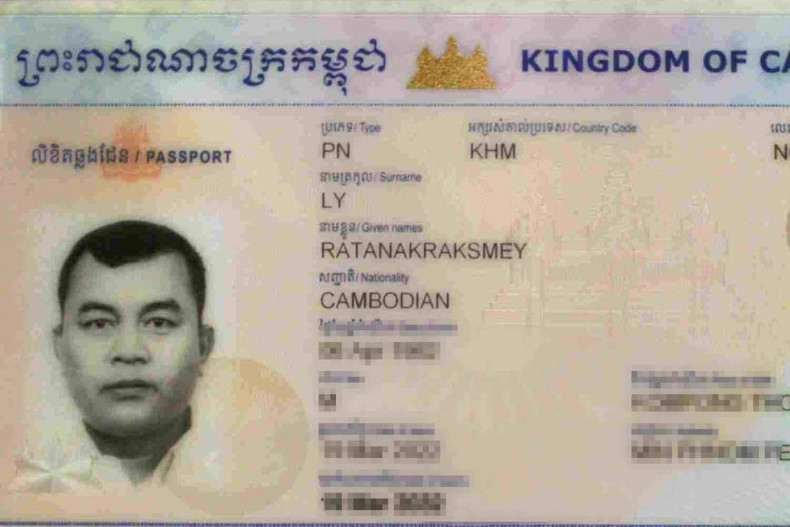
Denmark’s Prime Minister, Mette Frederiksen, reached out to US President-elect Donald Trump after his recent comments about potentially taking control of Greenland, a Danish territory. Denmark’s government expressed concern over Trump’s suggestion of military intervention to bring both the Panama Canal and Greenland under US control. Trump’s remarks, made on January 8, sparked international alarm, and Denmark quickly made it clear that Greenland’s sovereignty belongs to the Greenlanders.
While Denmark has stated it is open to talks regarding US interests in the Arctic, Prime Minister Frederiksen reiterated that Greenland is an autonomous region of Denmark, and its future must be decided by its people. “Greenland belongs to the Greenlanders,” Frederiksen emphasized in response to Trump’s comments.
International Support for Greenland’s Sovereignty
European leaders have voiced strong support for Greenland’s sovereignty. The Arctic island, though an autonomous territory of Denmark, has garnered global backing for its territorial rights. Russia has expressed concern over maintaining peace and stability in the Arctic region. With growing geopolitical competition in the region, Russia, the US, and China are all vying for influence as the Arctic becomes increasingly important due to climate change and melting ice.
Danish Government’s Response and Political Reactions
In response to Trump’s comments, Frederiksen summoned Denmark’s parliamentary leaders, including Greenland’s two representatives, for a meeting to discuss the government’s handling of the situation. Few details emerged from the two-hour talks, but Frederiksen confirmed that her office had reached out to Trump, though the two have not yet communicated directly. She assured reporters that a conversation would be proposed after Trump’s inauguration on January 20. Frederiksen also expressed confidence that Trump would not attempt to seize Greenland by force.
Danish political leaders from different parties voiced their perspectives on the situation. Morten Messerschmidt, the head of the right-wing Danish People’s Party, expressed confidence in Denmark’s desire to continue working closely with the US. Messerschmidt affirmed that the US is one of Denmark’s most important economic and defense allies. On the other hand, Inger Stojberg, leader of the Denmark Democrats, criticized the Danish government’s lack of a concrete plan in dealing with Trump’s remarks. She called for a more active approach after Trump assumes office.
One of Greenland’s representatives, Aki-Mathilda Hoegh-Dam, praised Prime Minister Frederiksen for maintaining a “good dialogue” on the issue. Hoegh-Dam also emphasized the importance of keeping a cool head and continuing the strong partnership between Denmark, Greenland, and the United States.
Geopolitical Context: The Arctic’s Growing Importance
The growing geopolitical rivalry in the Arctic has been fueled by climate change, which is rapidly opening up new shipping lanes and access to untapped resources. Greenland, with its vast reserves of oil and minerals, has become a focal point in this competition. However, oil and uranium exploration in the region remain banned due to environmental concerns. The United States maintains a military base in northwest Greenland, which underscores the strategic importance of the region to both the US and global powers.
Trump’s previous interest in purchasing Greenland in 2019 was swiftly rebuffed by both Greenland and Denmark. However, his most recent comments reignited concerns about the region’s geopolitical future. The United States, as part of its broader strategy in the Arctic, is closely monitoring the shifting dynamics in the region, especially as competition with Russia and China intensifies.
Global Reactions: Russia and Europe Weigh In
The Kremlin is closely monitoring the developments in the Arctic region. Russian officials have stressed the importance of preserving peace and stability in the region. Kremlin spokesman Dmitry Peskov reiterated Russia’s willingness to cooperate with any parties to maintain security in the Arctic. Meanwhile, other European leaders have dismissed the idea of military intervention in Greenland. Italian Prime Minister Giorgia Meloni stated that she believes the United States will not attempt to annex Greenland by force, viewing Trump’s remarks more as a strategic message to other global powers rather than a serious plan of action.
German Chancellor Olaf Scholz also emphasized that “borders must not be moved by force,” a principle he stated applies to all countries, whether in the East or the West. The European Union has reaffirmed its commitment to maintaining international law and respecting territorial sovereignty.
Greenland’s Position: The Future of the Arctic
Greenland’s Prime Minister, Mute Egede, spoke on Thursday in Copenhagen, reflecting on the territory’s new role in the international spotlight. He stated that Greenland is entering “a new era,” with its future to be shaped by its people. Greenland has long sought greater independence from Denmark, and the local government has made it clear that the development and future of the island will be decided by its inhabitants. Despite this, Greenland has affirmed its continued cooperation with the United States, with over 80 years of defense cooperation between the two nations.
Conclusion: A Critical Moment for Greenland’s Sovereignty
As the geopolitical rivalry in the Arctic intensifies, the future of Greenland remains uncertain. While Denmark and Greenland continue to emphasize their sovereignty and independence, they must navigate the growing influence of global powers like the US, Russia, and China. Denmark has made it clear that it does not seek to escalate tensions with the incoming US administration, but it is committed to safeguarding Greenland’s territorial rights.
With Greenland’s vast resources and strategic location, the Arctic is becoming one of the most important regions in global geopolitics. As the ice melts and new opportunities for exploration and shipping emerge, countries will continue to vie for influence in this crucial area. Greenland’s future, however, will ultimately be determined by the decisions of its people, with Denmark’s support and international cooperation playing vital roles in shaping that future.







